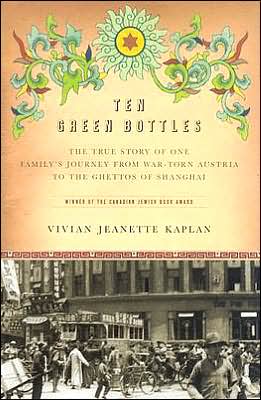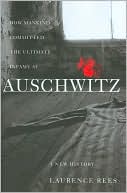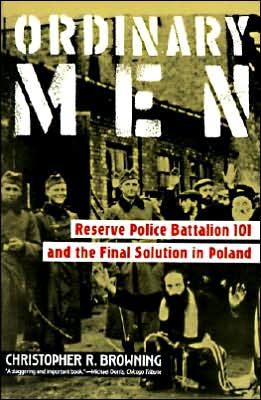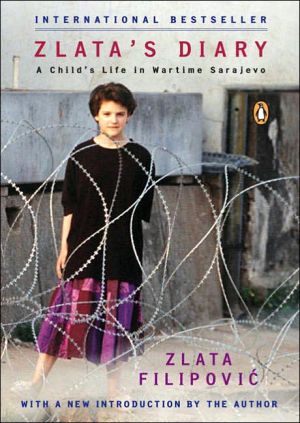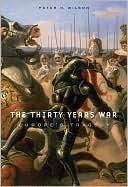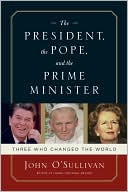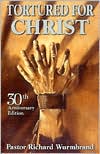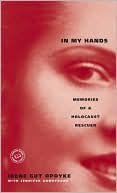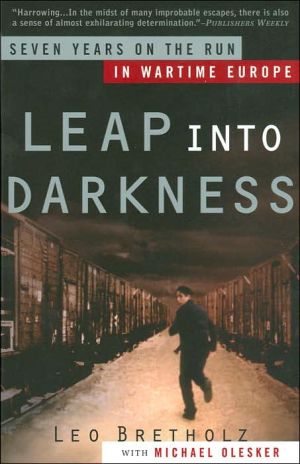Ten Green Bottles: The True Story of One Family's Journey from War-Torn Austria to the Ghettos of Shanghai
To Nini Karpel, growing up in Vienna during the 1920s was a romantic confection. Whether schussing down ski slopes or speaking of politics in coffee houses, she cherished the city of her birth. But in the 1930s an undercurrent of conflict and hate began to seize the former imperial capital. This struggle came to a head when Hitler took possession of neighboring Germany. Anti-Semitism, which Nini and her idealistic friends believed was impossible in the socially advanced world of Vienna,...
Search in google:
This is the American edition of a family saga first published in Canada in 2002, by Robin Brass Studio, Inc. Kaplan was born in Shanghai in 1946; her parents were Jewish refugees who had fled Nazi occupied Austria five years earlier. Within a couple years of her birth, the family migrated to Toronto. In a novelistic voice she recounts her parents' experiences, beginning with their early childhood and ending with their arrival in Canada. Annotation ©2004 Book News, Inc., Portland, OR Publishers Weekly For a brief period between 1938 and 1941, roughly 20,000 Jews found refuge from the Nazis in the one place not requiring visas, police certificates or proofs of financial independence: Shanghai. In this spellbinding memoir, Kaplan recounts her family's transition from the "delight" of Vienna to "a mysterious blob on the map, China." Writing in a fictional present tense, Kaplan narrates this evocative, moving saga in the voice of her mother, Nini. The halcyon early years of cafes and skiing end as the Nazis rise to power. Still, in 1936 when Nini meets her future husband, Poldi, a Polish refugee, she is "adamant that [persecution of Jews] could never happen here." It does. By 1939, her family will make the month-long, 7,000-mile journey to Shanghai. Amid "pervasive poverty... overpowering heat... [and] strange faces," Nini and Poldi find an anxious and precarious normality, but after Pearl Harbor, they struggle terribly. With the war's end comes the shock of learning what became of family and friends left behind in Europe. Although Vienna is rebuilt and a daughter (the author) is born, Communist troops arrive, and Nini and Poldi move again, this time to Canada. Kaplan's intimate knowledge of her parents' story makes it seem as if she experienced it herself, and her remarkable achievement will make readers feel that way, too. Agent, Barry Kaplan. (Nov. 10) Forecast: Although there is a ton of Holocaust literature, the China experience is not as well mined, which sets this book winner of the Canadian Jewish Book Award apart. Copyright 2004 Reed Business Information.
IntroductionixAcknowledgmentsx1Papa 192112Changes 192273Remembrance 1923134Vienna 1926175Growing Up 1931246Politics 1934327Poldi 1936408Passover Story 1937459Letters from Italy 19385310Anschluss 19386011The Devil's Warrior 19387212Means of Escape 19387713Kristallnacht November 19388514Farewell January 19399315Purge in Italy January 19399916Fatal Miscalculation February 193910317Departure 193910818The Voyage 193911219Shanghai 193912020The French Concession 193913221The Club 193914122Beshert 193914923We Are Married 194015724Return to Shanghai 194016925Ten Green Bottles 1940-194117426Pearl Harbor 194118227Hongkew 1942-194319228Survival 194420929Life in Hongkew 1944-194521830The War Continues 1943-194522931Bombs Fall in Hongkew 194523232Victory 194524333The Shock of the Holocaust 194525134Life after the War 194625535All's Well 194726536The Communists 194826937The Ship 194927538Toronto February 1949282
\ From the Publisher"Spellbinding . . .evocative . . . remarkable achievement. China experience.....sets this book apart" \ – Publisher’s Weekly\ "Riveting . . . moving and memorable"\ – Kirkus Reviews\ "Kaplan's prose is simply stunning . . . Kaplan's descriptions bring wartime Shanghai, its people and smells, to life . . . Although nonfiction, Ten Green Bottles reads like a novel. Kaplan captures the mood and feelings of her mother experiences as if they were her own."\ - Canadian Jewish News\ "Kaplan writes in the first-person voice of her mother . . . a decision that gives her book an emotional power and vivid immediacy."\ - Maclean's\ "Her powerful, harrowing story grips the reader. In an odyssey of horrors that takes place over a decade . . . what shines through is the family's indomitable will to survive."\ - Ottawa Citizen\ \ \ \ \ \ Publishers WeeklyFor a brief period between 1938 and 1941, roughly 20,000 Jews found refuge from the Nazis in the one place not requiring visas, police certificates or proofs of financial independence: Shanghai. In this spellbinding memoir, Kaplan recounts her family's transition from the "delight" of Vienna to "a mysterious blob on the map, China." Writing in a fictional present tense, Kaplan narrates this evocative, moving saga in the voice of her mother, Nini. The halcyon early years of cafes and skiing end as the Nazis rise to power. Still, in 1936 when Nini meets her future husband, Poldi, a Polish refugee, she is "adamant that [persecution of Jews] could never happen here." It does. By 1939, her family will make the month-long, 7,000-mile journey to Shanghai. Amid "pervasive poverty... overpowering heat... [and] strange faces," Nini and Poldi find an anxious and precarious normality, but after Pearl Harbor, they struggle terribly. With the war's end comes the shock of learning what became of family and friends left behind in Europe. Although Vienna is rebuilt and a daughter (the author) is born, Communist troops arrive, and Nini and Poldi move again, this time to Canada. Kaplan's intimate knowledge of her parents' story makes it seem as if she experienced it herself, and her remarkable achievement will make readers feel that way, too. Agent, Barry Kaplan. (Nov. 10) Forecast: Although there is a ton of Holocaust literature, the China experience is not as well mined, which sets this book winner of the Canadian Jewish Book Award apart. Copyright 2004 Reed Business Information.\ \ \ Library JournalOne of the great, tragic epics of the last century was the odyssey of Jewish families from Hitler's Europe to relative safety in Japanese-occupied Shanghai in the late 1930s. (The Japanese were not anti-Semites, though when war broke out they were happy enough to accommodate their Fascist allies.) This beautifully composed and engrossing memoir relates the story of the author's mother, who traveled from 1920s Austria to Shanghai and eventually settled in Canada. Kaplan, winner of the Canadian Jewish Book Award in Biography/Memoir, brings the history of the period to life as she shows how the family adapted to each development. Somehow, as in The Diary of Anne Frank, the outcome of this tale is uplifting and instructive, showing us that nobility endures despite political oppression, war, poverty, disease, and human pettiness. Although the general historical facts are well known, this is a worthwhile retelling of a story that each new generation should hear. Recommended for larger public libraries.-Charles W. Hayford, Northwestern Univ., Evanston, IL Copyright 2004 Reed Business Information.\ \ \ \ \ Kirkus ReviewsRiveting account of a family who fled the Nazis only to endure further persecution in Shanghai. Characterizing her work-winner of the Canadian Jewish Book Award-as "a memoir in the creative non-fiction genre," the author, who was born in Shanghai and now lives in Canada, tells the story in the voice of her mother, Nini Karpel, the youngest daughter of a prosperous and patriotic Viennese department-store owner. Her father died suddenly in 1922 when Nini was six, leaving her mother responsible for the business as well as their four children. Life went on more or less as usual, but the political situation was of increasing concern. In 1936, Nini fell in love with Poldi Kosiner, the son of Polish refugees, but he could find work only in Italy, and they had to continue their romance by correspondence. When the Nazis annexed Austria in 1938, the Karpels were immediately affected by the new anti-Jewish laws; their business and assets were seized, relatives were beaten, and they feared for their lives. Learning that refugees were welcome in Shanghai, Nini, acting on her own, approached a gentile lawyer, who bought their tickets for the long voyage to China. Her courageous initiative helped save her mother and siblings; with travel arrangements in place, the Karpels were able to obtain exit visas. Once in Shanghai, a place quite unlike any they had ever known, they were joined by Poldi, who came overland. Richly evoking the city's sights and smells, Nini's narrative details their struggle to find work; the arrival of the Japanese, who made Jews live in Shanghai's rundown Hongkew section; the brief interlude of peace and prosperity when the war finally ended; and then the Communist takeover thatmade it impossible for the family to remain in China. Kaplan closes with their 1949 arrival in Toronto. A moving and memorable portrayal of a less familiar aspect of the Jewish plight during WWII.\ \
